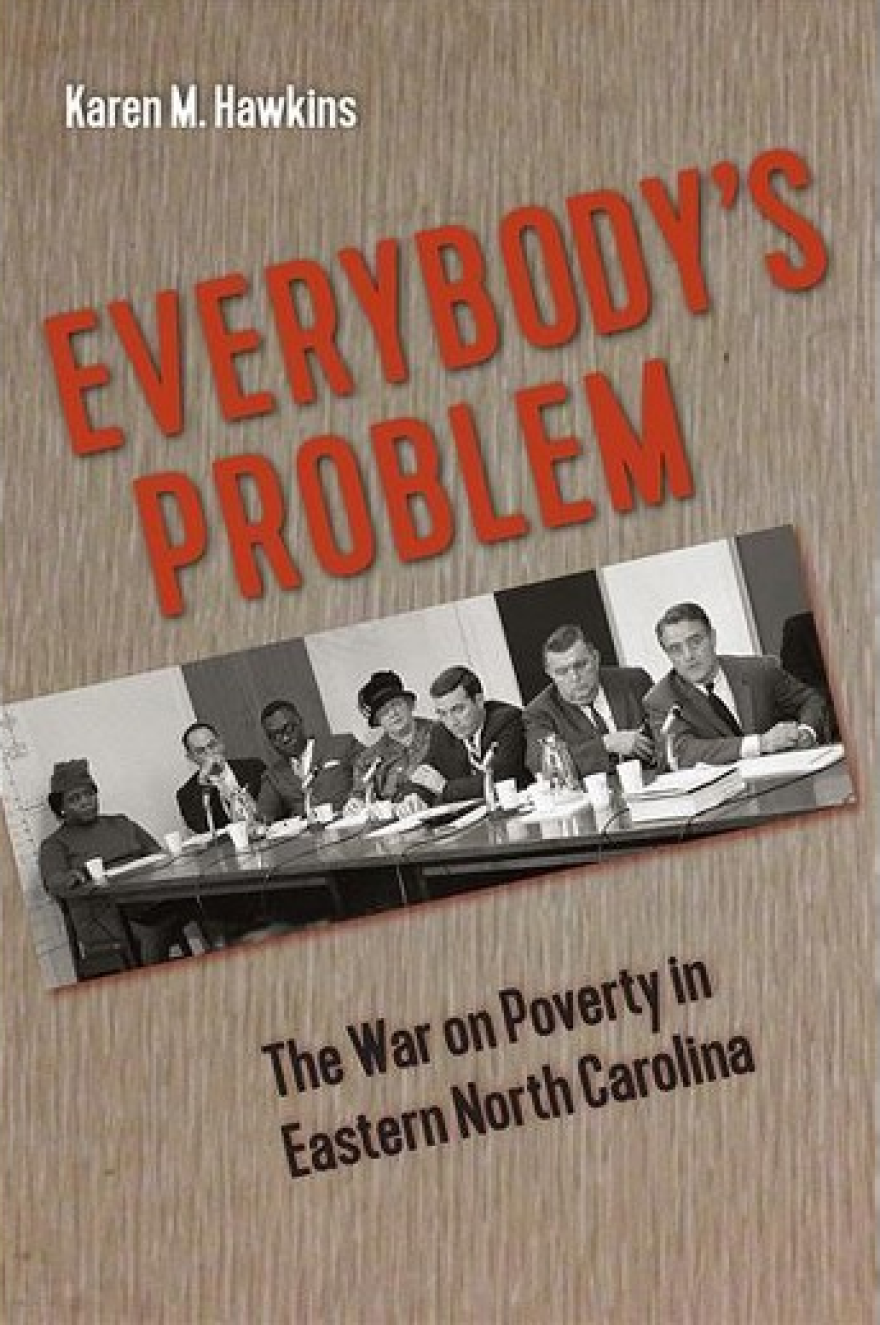Lyndon B. Johnson declared a “War on Poverty” in his 1964 State of the Union address, and its effectiveness has been debated ever since. In big cities like Chicago and Baltimore, the era came to be associated with protests and civil unrest.
Scholars have traditionally thought those loud liberal voices were most responsible for empowering the poor. But scholar Karen Hawkins argues that something different took place in rural communities.
She spent years studying primary sources from Craven County, North Carolina and concluded that political moderates and biracial groups who put their differences aside made a significant amount of positive change. Hawkins is a high school teacher in Durham and the author of “Everybody’s Problem: The War on Poverty in Eastern North Carolina”(University Press of Florida/2017). Host Frank Stasio speaks with Hawkins about how the War on Poverty affected small, local communities and brought industry to the agricultural Craven County.



